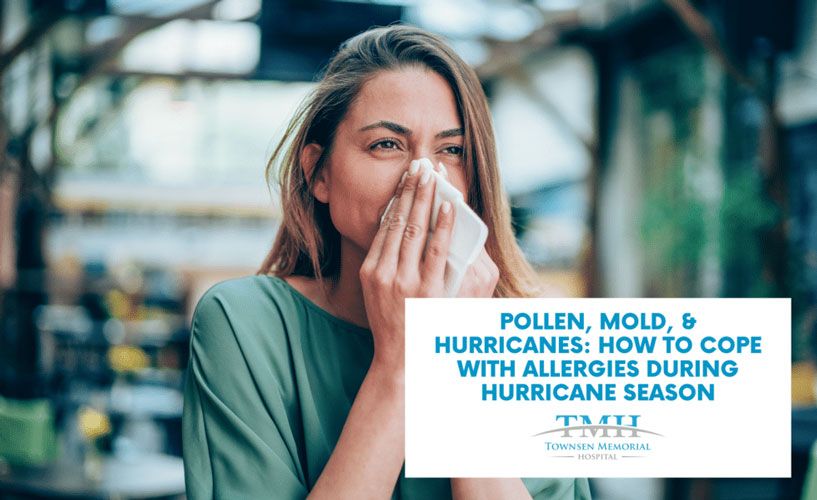Pollen, Mold, & Hurricanes: How To Cope With Allergies During Hurricane Season

As hurricane season approaches in Houston, residents must prepare for more than just strong winds and heavy rains. The combination of pollen, mold, and hurricanes can make this time of year particularly challenging for those with allergies. In this blog, we’ll explore how these factors can exacerbate allergies and provide essential tips on how to cope during hurricane season.
Hurricane season in Houston typically spans from June to November, coinciding with the peak of pollen production and mold growth. This intersection of factors can be a perfect storm for allergy sufferers.
Let’s delve into how each element can contribute to worsening allergies:
- Pollen: Houston is notorious for its high pollen counts, especially from trees like oak, pine, and cedar. When hurricanes approach, they stir pollen particles, causing them to become more airborne and easily inhaled. This can increase symptoms like sneezing, itchy eyes, and congestion.
- Mold: Mold spores thrive in damp and humid conditions, prevalent during and after hurricanes. Excess moisture can grow mold inside homes, on walls, and in outdoor areas. Mold spores are a common allergen and can trigger symptoms such as coughing, wheezing, and skin rashes.
- Indoor Allergens: During hurricane season, people often spend more time indoors to escape the inclement weather. However, indoor allergens like dust mites and pet dander can become concentrated in indoor spaces, exacerbating allergy symptoms for those sensitive to these triggers.
Let’s explore practical strategies to manage allergies in Houston during hurricane season:
- Stay Prepared: Keep allergy medications on hand and follow your prescribed treatment plan. Consult with a Townsen Memorial professional at any of our nine locations for personalized advice, and consider getting allergy shots if recommended.
- Monitor Pollen Counts: Stay informed about daily pollen counts in your area. Many weather apps and websites provide this information. Consider staying indoors or wearing a mask when going outside on days with high pollen counts.
- Limit Mold Exposure: Take steps to prevent mold growth in your home. Ensure good ventilation, fix leaks promptly, and use dehumidifiers in damp areas. Consider using air purifiers with HEPA filters to reduce indoor mold spores.
- Allergen-Proof Your Home: Invest in allergen-proof covers for pillows and mattresses to reduce exposure to dust mites. Regularly clean and vacuum your home to minimize indoor allergens.
- Plan For Evacuation: If you must evacuate during a hurricane, pack essential allergy medications and supplies. Also, inform your evacuation shelter about your allergies so they can accommodate your needs.
- Stay Hydrated: Drinking plenty of water can help thin mucus and alleviate allergy symptoms. It can also help your body flush out allergens more efficiently.
Houston’s hurricane season can be challenging for allergy sufferers due to the convergence of pollen, mold, and inclement weather. However, by staying informed, taking preventive measures, and having a well-thought-out allergy management plan, you can minimize the impact of allergies and enjoy the season to the fullest.
Remember that consulting with a healthcare professional, such as our doctors at Townsen Memorial, can provide personalized guidance on managing allergies during hurricane season. With the right strategies and precautions, you can navigate this challenging time with greater comfort and peace of mind.